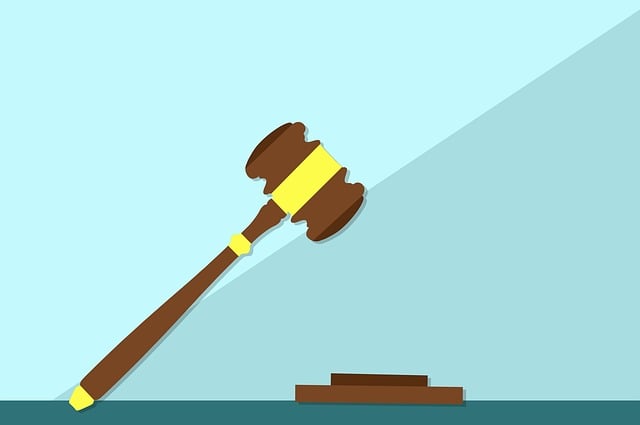The RF Securities Industry Regulation ensures fairness and investor protection by applying a strict "understanding burden of proof" in criminal cases, mirroring jury trial standards. This requires rigorous investigation and enforcement, fostering market trust. In white-collar crimes, prosecutors must prove guilt beyond a reasonable doubt, while securities litigation uses a lower standard. Lawyers defend clients against these charges using strategic challenges to evidence and testimonies. Understanding this burden is crucial for both sides in RF securities cases, ensuring fairness and protecting investors as regulatory standards evolve.
In the dynamic landscape of financial markets, robust regulation is pivotal for investor protection. This article delves into the intricate world of RF Securities Industry Regulation, focusing on the crucial concept of ‘Understanding Burden of Proof in Criminal Cases’. We explore how proof plays a pivotal role in criminal proceedings within the securities industry, examining legal standards and the challenges that arise in applying these standards. By analyzing these aspects, we highlight the impact on regulatory enforcement and offer insights into safeguarding investors.
- Defining RF Securities Industry Regulation
- The Role of Proof in Criminal Proceedings
- Burden of Proof: Legal Standards and Requirements
- Challenges in Applying Burden of Proof in Securities Cases
- Impact on Regulatory Enforcement and Investor Protection
Defining RF Securities Industry Regulation

The RF Securities Industry Regulation refers to the laws and guidelines that oversee and govern financial markets involving radio frequency (RF) securities. This includes a comprehensive framework aimed at ensuring fairness, transparency, and protection for both investors and businesses operating within this niche sector. Understanding the RF Securities Industry Regulation involves comprehending the intricate balance between enabling innovation in these markets and maintaining robust oversight to mitigate potential risks and fraud.
A key aspect of this regulation is the concept of the “understanding burden of proof in criminal cases.” Similar to jury trials, where evidence must be compelling and beyond a reasonable doubt, regulatory bodies must navigate all stages of the investigative and enforcement process with rigor. This ensures that any accusations or allegations against respective businesses are fairly assessed. By upholding high standards throughout these processes, RF Securities Industry Regulation fosters trust and confidence in the market while promoting ethical conduct among participants.
The Role of Proof in Criminal Proceedings

In criminal proceedings, understanding the burden of proof is pivotal for both prosecution and defense. The concept revolves around ensuring that evidence presented is reliable, substantial, and relevant enough to justify a conviction. In many jurisdictions, this standard is typically set at ‘beyond a reasonable doubt’, placing the onus on the prosecution to prove their case. This process involves scrutinizing every piece of evidence, from witness testimonies to forensic analyses, across all stages of the investigative and enforcement process.
For a successful criminal defense, especially in white-collar cases, lawyers employ various strategies to challenge the burden of proof. They may question the reliability of evidence, raise reasonable doubts about eyewitness accounts, or highlight procedural irregularities during investigations. These tactics not only ensure fairness but also underscore the importance of robust proof in securing just outcomes.
Burden of Proof: Legal Standards and Requirements

In criminal cases, particularly those involving complex financial matters like white-collar and economic crimes, understanding the burden of proof is paramount. This legal concept refers to the responsibility of a party (usually the prosecution) to present sufficient evidence to convince a judge or jury of a defendant’s guilt beyond a reasonable doubt. Unlike civil cases where the standard is often a preponderance of evidence, criminal trials demand a higher bar due to the potential loss of liberty.
The burden of proof varies according to jurisdiction but generally requires prosecutors to gather and present compelling facts, witness testimonies, and expert opinions. In high-stakes cases, where substantial financial losses or fraudulent activities are at play, meeting this burden can be intricate. It demands a meticulous investigation, thorough documentation, and a deep understanding of the respective business practices to ensure that every element of the crime is proven in accordance with legal standards and requirements.
Challenges in Applying Burden of Proof in Securities Cases

The application of the burden of proof in securities cases presents unique challenges for regulators and legal professionals alike. Unlike criminal cases where the prosecution bears the onus of proving guilt beyond a reasonable doubt, securities litigation often involves complex financial transactions and intricate legal interpretations. This difference can significantly impact outcomes, especially in white-collar defense strategies. Understanding the burden of proof in criminal cases is crucial but may not fully prepare lawyers for the nuances of securities regulation.
In securities disputes, the bar for proving guilt is lower, typically requiring a preponderance of evidence. However, this shift can make it easier to secure convictions in jury trials. As a result, defendants facing charges must be vigilant in presenting robust defenses or risk a complete dismissal of all charges. Navigating these challenges requires a deep understanding of both securities law and effective trial strategies to ensure fairness and protect the rights of those accused.
Impact on Regulatory Enforcement and Investor Protection

The RF Securities Industry Regulation significantly impacts both regulatory enforcement and investor protection. As the regulatory landscape evolves, understanding the burden of proof in criminal cases becomes paramount. This is crucial throughout all stages of the investigative and enforcement process, ensuring that accusations are backed by substantial evidence and due process is followed.
A robust regulatory framework not only discourages fraudulent activities but also provides a safety net for investors within the financial markets. By upholding high standards of integrity, these regulations safeguard philanthropic and political communities from unscrupulous practices, fostering trust in the overall economic system. The complete dismissal of all charges in cases where evidence is insufficient underscores the importance of meticulous investigation and fair adjudication, further bolstering investor protection.
Understanding the burden of proof in criminal cases is paramount in the context of RF securities industry regulation. By applying stringent legal standards, regulators can enhance investor protection and ensure fair market practices. Despite challenges in applying these standards in securities cases, a clear framework mitigates risks and promotes transparency. This, in turn, fosters public trust and strengthens the integrity of financial markets.






